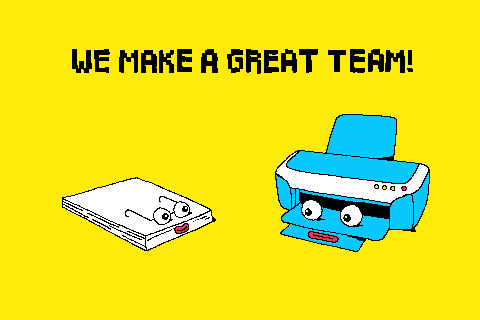Companies can sell more by acting like a Tour-de-France team

(Photo: Shutterstock)
Are the best salespeople high-speed ‘smart from the start’ types or team players? Danish researchers have developed a new model that can improve corporate sales centers.
ResearcherZone | 22. Oct 2019
By Mogens Bjerre, Ph.D., Associate Professor at the Department of Marketing, CBS, Henrik Johannsen Duus, Ph.D., Associate Professor at the Department of Marketing, CBS, and Torben Ulrich, CEO, Curius
Many people may have seen the film and play ‘Death of a Salesman’, which portrays the figure of the salesman as a tragic individual. Others know the cliché about the quick-witted used-car salesman whose ‘smart-alec’ attitude cheats unsuspecting customers.

(Illustration by Shutterstock)
The real world is somewhat different.
Sales is normally a team effort. Various people work positively together as a team to create the highest possible value together with the customer, developing long-term customer relations that benefit both the company selling the goods or services, and the customer.
In a new research project at CBS, we investigated the best way to understand sales in Danish business firms – and devised the tools required to improve sales and performance even more.
We collaborated directly with the business community
The team of employees involved with sales can be described as a sales center. In a case study of six large Danish companies spanning a time frame from 2005 to 2017, we studied and optimized the companies’ sales through a development initiative. In other words, during the research, we introduced changes in the companies and analyzed the outcomes.
In total, we contacted and interviewed more than 50 managers and held presentations at workshops attended by more than 500 employees.
We developed a sales center model and mapped the various types of sales centers in the Danish business community. We also developed different management principles and new management methods for sales centers.
The model was implemented at the companies, which benefited from higher sales and improved efficiency after collaborating with CBS.
In the following, we briefly describe what the model contains and how it enhances our insight into sales.
The salesforce Tour de France
Our model, shown below, outlines a sales team comprising eight different roles or behavior types. You can therefore compare the sales center with a Tour-de-France cycle team, which has a team director, team captain and several support riders, each with specific tasks. Add to that mechanics, doctors, masseurs, physiotherapists, secretaries, a chef and kitchen assistants, purchasers etc.
All members of a cycle team must work closely together as a unit to function efficiently. A team is not just a group but a cohesive unit in which everyone contributes to reaching the goal.

However, this requires good leadership from the team director and team captain.
Sales centers are the same. When a sales center is managed efficiently and optimized, sales rise.
The sales center: A multi-nuanced asset
The eight roles featured in our model can be allocated to many or a few people depending on the size of the company. As with a cycle team, each role is associated with a specific behavior, specific task types, a specific balance of power, specific responsibilities as well as specific skills and resources.

The model can be used to strengthen the sales center management – after all, sales is a management responsibility, just like everything else in a company, though that is not always obvious.
Special tools are also needed, which we developed for the project. Among other contributions, we mapped a total of four different types of sales centers.
For example, it is crucial whether sales centers have long-term or shorter dynamic relationships, and whether their tasks are specialized or general.
General permanent sales centers have long-term relationships with large customers. These are usually found in classic industrial companies.
General dynamic sales centers have rapidly changing collaboration patterns, groups of people and skills. These are often seen in very international companies.
Specialized permanent sales centers are strongly focused and frequently involve strong obligations concerning research, development, competencies and knowledge. These are common in research-intensive companies.
Specialized dynamic sales centers are also focused but open to the external use of knowledge, resources, competencies and specialists. These are familiar to companies with a huge project portfolio.
In addition to addressing the task of management, we developed the ‘Team Profiler’ management tool as well as various qualitative management guidelines .
Good selling is like a healthy marriage
However, sales are not the only way of measuring the effect, just as the mission of a sales center is not simply to sell customers as much as possible in a short time.
In a long-term relationship, customers should feel their needs are met, that year after year, the right products and the right services are delivered – at the right prices.
That means benefits may be gained from selling less initially in order to sell more later.
Rather than focusing on sales, we therefore chose to look at interaction between sales centers and customers. This interaction can be described in various phases, as is the case with a human relationship (such as a marriage).

The first phase therefore involves acknowledging ‘the other’s’ existence. The second phase is a test, such as a sample order. The third phase involves establishing a proper long-term relationship between the customer and the sales center. The fourth phase is the trust phase, when the relationship is consolidated.
Interaction increases during this process – a so-called interaction lifecycle – although sales do not necessarily increase. Nevertheless, such interaction is extremely profitable for the company, precisely because the relationship becomes long term.
In other words: If the marriage is to last, you must sign up for the long haul – not simply focus on pleasure here and now.
What does this mean for the sales center management?
Using our sales center model, managers can discover errors and omissions in how sales tasks are organized, while also gaining new ideas about developing the team selling process.
The manager should ask: Does the sales center function well? Are special roles, skills, people and resources needed to make a delivery? Is everyone contributing to the sales task? Are there superfluous people employed? Would a new recruit complement our efforts?
Which skills are required? How should our team be trained and educated? How should the sales center develop in certain circumstances and specific situations?
All these questions can be answered using our model, the sales center types and the management tools that we have developed.
Still more can be done
Our research has revealed a new approach to thinking about sales. In our view, selling is not an individual short-term and random affair but a long-term team task that can be mapped and analyzed in depth.
Yet much more can be accomplished.
For example, it could be relevant to investigate how national and cultural differences as well as centralization/decentralization affect the model..
Do large centralized German companies differ from small or medium-sized decentralized Danish companies, for instance?
Or, to cruise along in the slip stream of our own analogy: Do the best Tour-de-France tactics differ among cycle teams from different parts of the world where conditions vary?
Hopefully, this, and other questions, will be answered by future research into sales and management.




































































































































Comments